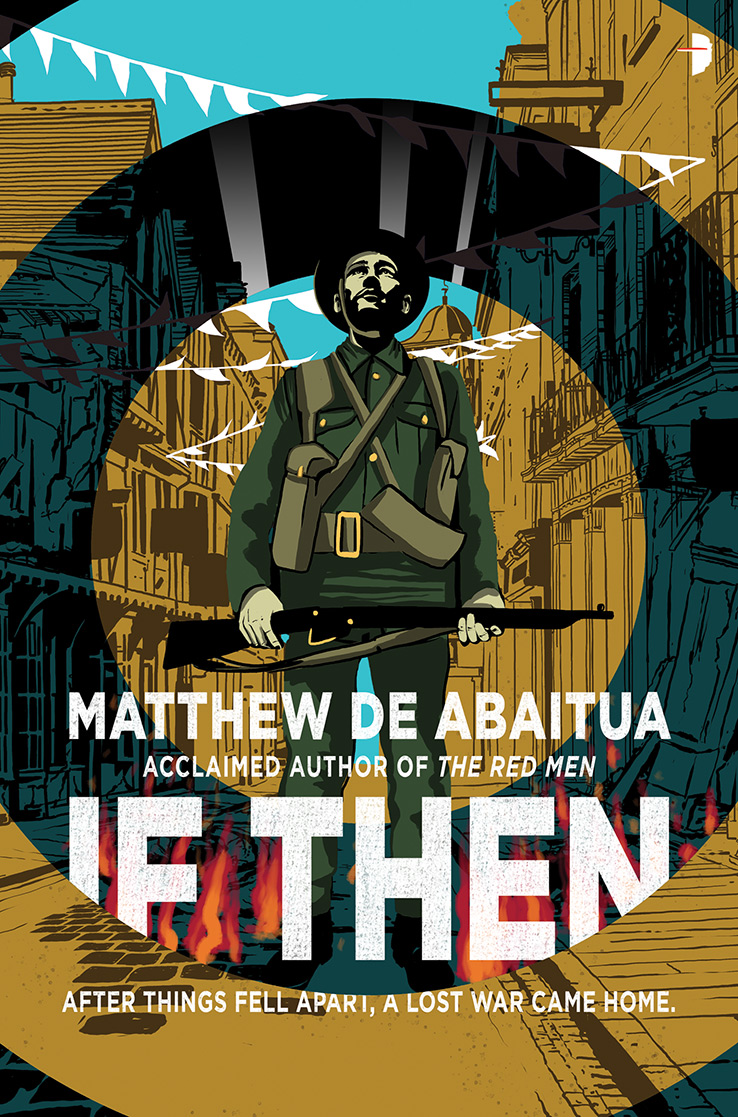 What if there was an equation to help us understand and ultimately eliminate war? That is one of the central themes of Matthew De Abaitua’s latest novel, If Then (Angry Robot Books).
What if there was an equation to help us understand and ultimately eliminate war? That is one of the central themes of Matthew De Abaitua’s latest novel, If Then (Angry Robot Books).
The title itself suggests the principles of certain formulae, such as computer coding (“if this…” “then that…”), although if, like me, you find mathematics a mystery it will not deter your enjoyment of this profound and deeply unsettling work.
Like The Hunger Games and a range of other dystopian novels we have here a society divided by territories. In this story, in the main locale of Lewes, England, we have a population controlled by a system in which implants govern the way people live and behave.
The main protagonist, James, is the Bailiff, whose job it is to evict certain people from the town, for reasons which are unclear until close to the end of the story. While for the most part he behaves like a normal man and a loving husband to his wife, Ruth, his personality changes when it comes to evictions…the overriding code inside him ensures that he carries out his role as lawman without questioning the morality of casting out families, even small children, into the perilous world beyond the walls of the town. Indeed, When words and assertive actions fail, James dons power armour with which he literally rips off people’s house roofs, and kills any inhabitants who do not to comply with their eviction order.
James is also called upon to observe and caretake a reconstructed man called Hector – built, seemingly from the genetic code of a stretcher bearer who served in the World War I. Hector feels like a half-person, given to speaking only rarely, and in words that don’t seem to make much sense without context. Hector is/was a pacifist who volunteered to be a stretcher-bearer during the conflict, one of the most courageous roles a soldier could play at the time.
At the conclusion of the latest eviction, which the bailiff carries out in spite of his wife’s, and townspeople’s, opposition, we are dropped into the novel’s second part, the middle of the World War I debacle that was the Allied invasion of Suvla Bay. The Allies were largely slaughtered by the Turkish and German army in one of the war’s more terrible episode. It is here that we find James, and the now apparently-real Hector, working together bearing the wounded on stretchers to the medical staff.
The war scenes have an hallucinatory, almost hynogogic, quality that are utterly harrowing. The author brilliantly images what it must have been like to experience the tedium and terrors of the Great War. The relentless shelling, the sniper fire, the appalling conditions the soldiers had to endure, are written in such a way that I felt as though I were actually there. I was reminded somewhat of the scene in the film, Atonement, in which James McAvoy wanders through a fairgroundlike beach landing evoking the surreal, absurd and nightmarish thing that is warfare.
Much like a recurring nightmare, James and others (the evicted, we later find out) have been programme to continually re-experience the war in a time loop, while the powers that be try to understand war and potentially end it. However, the motives of the perpetrator of this appalling form of social engineering, Omega John, are continually in doubt. Is he an unreliable narrator, or a man with ultimately good intentions though prepared to sacrifice others for the greater good? Or is he just another monster playing with his prey?
If Then is a particular kind of British rural science fiction, in which a deeply unsettling pall overshadows what should be a Utopian idyll. The novel has antecedents in the works of John Wyndham, George Orwell and Aldous Huxley – and it is every bit as good as the best works of those writers. It is full of mind-bending ideas, great characters and wonderful writing. If there is any justice, it deserves a nomination for the next Hugos.

















Speak Your Mind